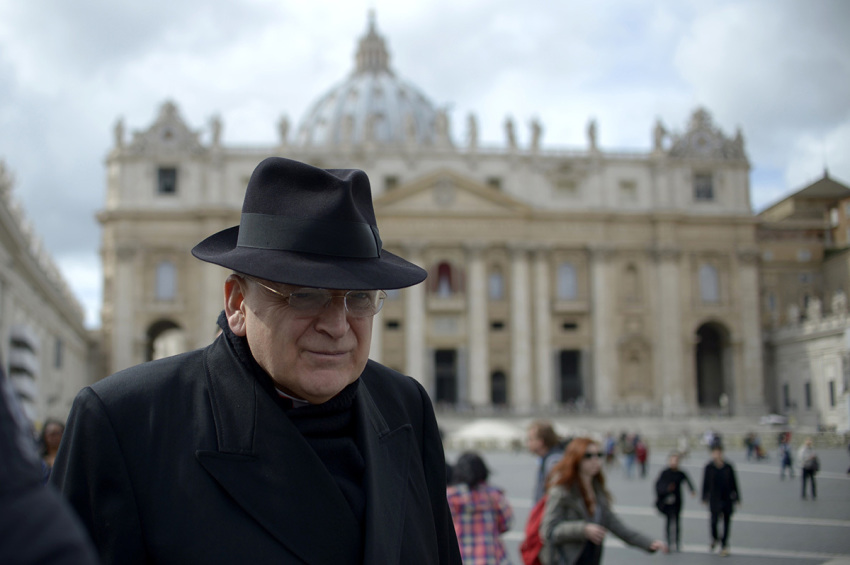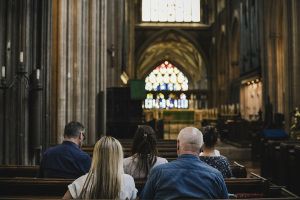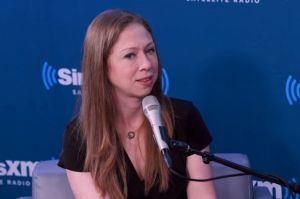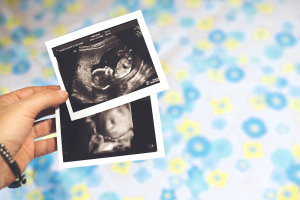Cardinal Raymond Burke says he's 'still alive' after first meeting with Pope Francis in 7 years
Francis reportedly evicted Burke from his Vatican apartment, stripped him of salary

Conservative American Cardinal Raymond Burke had a private audience with Pope Francis on Friday for the first time in seven years, just weeks after the pontiff reportedly stripped him of his salary and effectively evicted him from his Vatican apartment.
"Well, I'm still alive," a black-clad Burke, 75, briefly recounted to reporters about how the meeting went, according to Reuters. The outlet noted that he offered no further comment about the private papal meeting, which was reportedly his first since Nov. 10, 2016.
Burke's secretary echoed him, telling Catholic News Service: "His Eminence wishes to give no comment at this time."
The Vatican confirmed the meeting in a Friday press release, but offered no further details.
The meeting comes a month after two sources told The Associated Press that Pope Francis said during a Nov. 20 meeting of the heads of Vatican offices that he was taking away Burke's subsidized Vatican apartment and his retired cardinal's salary because he was using his cardinal privileges against the Catholic Church.
Another source claimed Francis accused Burke of sowing "disunity" in the denomination, and an anonymous source at the meeting told the conservative Italian newspaper La Nuova Bussola Quotidiana that Francis said, "Cardinal Burke is my enemy, so I take away his apartment and his salary."
Papal biographer Austen Ivereigh subsequently confirmed that pope told him that he took away Burke's apartment and salary, but noted that he denied ever calling Burke his "enemy."
"[Francis] told me that while the decision wasn't a secret, he didn't intend a public announcement, but earlier that day it had been leaked," Ivereigh wrote.
Reports indicate that Francis expects Burke to move out of his Vatican apartment by the end of February, according to the National Catholic Reporter.
A source with knowledge of the pope's thinking told Catholic News Service that he "didn't see why he should continue to subsidize Burke attacking him and the church," and noted that Burke "seemed to have plenty of money from America."
Burke, who was made a cardinal in 2010 by Pope Benedict XVI, has been one of Francis' most outspoken critics in Catholic hierarchy and has been repeatedly demoted during his papacy. In 2014, Burke said the pope's leadership has given some Catholics "a strong sense that the Church is like a ship without a rudder."
That same year, the pope removed Burke from his position as head of the Supreme Tribunal of the Apostolic Signatura, which is the Vatican's highest court to which Benedict XVI appointed him in 2008.
Burke also lost his position in the Congregation for Divine Worship and his patronage of the Sovereign Military Order of Malta.
In 2021, Burke issued a 19-point statement describing the Vatican's restrictions on the Traditional Latin Mass as "severe and revolutionary," and questioned whether the pontiff had the authority "to change doctrine or to eradicate a liturgical discipline which has been alive in the Church since the time of Pope Gregory the Great and even earlier."
In 2016, Burke joined other conservative cardinals in formally requesting Pope Francis to clarify his teachings on the family, especially regarding outreach to divorced and remarried Catholics, though Francis never responded.
Burke and four other cardinals made a similar formal request — also known as "dubia" — in July, asking for clarity regarding the interpretation of Divine Revelation, same-sex unions, synodality, ordination of women, and repentance as a necessary condition for sacramental absolution.
Francis responded to the request before the Synod on Synodality that began on Oct. 9, which Burke criticized in a press conference days before.
"It is unfortunately very clear that the invocation of the Holy Spirit by some has for its purpose the advancement of an agenda that is more political and human than ecclesial and divine," Burke said at the time.



























